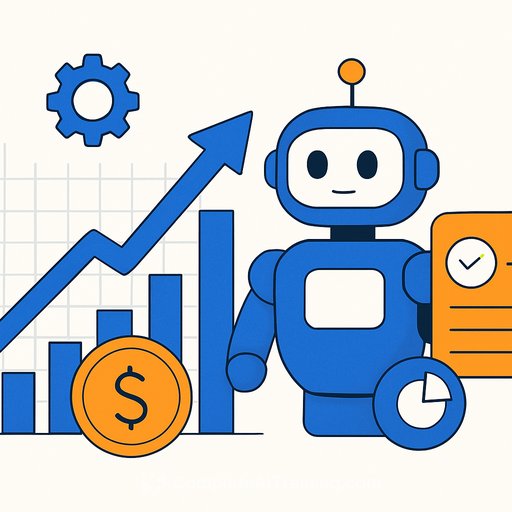The Bull Case For Workday (WDAY) After Integrating Paradox AI
Workday closed its acquisition of Paradox, an AI conversational agent focused on frontline hiring. The thesis: bring chat-based sourcing, screening, and scheduling into Workday to cut time-to-hire, lift recruiter throughput, and keep candidates engaged with round-the-clock responses.
This slots into Workday's plan to embed scalable AI across HR and finance, including the new Illuminate agents. The strategic question for investors is simple: will adoption of these AI features be fast enough to sustain growth and support valuation?
Why This Matters For The Thesis
- Product logic: Paradox improves the top of the funnel, while Workday handles downstream recruiting workflows. Expect fewer handoffs and less manual follow-up.
- Commercial logic: tighter integration can raise attach rates for Recruiting and Talent modules and reduce churn through better outcomes.
- Pricing leverage: packaged AI features can support tiered SKUs and enterprise agreements, if customers see measurable time and cost savings.
- Data advantage: more candidate interactions flowing through Workday can refine models and recommendations across HR suites.
What Could Go Right
- Adoption: Illuminate agents plus Paradox become default in Recruiting rollouts, pushing higher win rates in competitive deals.
- Efficiency: shorter cycle times (apply-to-offer), lower cost per hire, and higher recruiter requisition capacity.
- Expansion: higher cross-sell into Talent, Learning, and HCM, especially in multi-geo frontline environments.
- Stickiness: improved outcomes translate to higher net revenue retention and lower competitive displacement.
What Could Go Wrong
- Competition: AI-native HR start-ups iterate faster, compressing price and limiting incremental module uptake.
- Quality: weak model performance on screening and scheduling erodes recruiter trust and usage.
- Compliance: bias, consent, and data residency concerns slow deployments in regulated markets.
- Integration: lag between promise and real workflow gains delays ROI, extending sales cycles.
The Numbers That Must Work
The current narrative targets $12.9 billion revenue and $1.8 billion earnings by 2028. That implies roughly 13% annual revenue growth and a $1.22 billion increase in earnings from $583 million today.
For the equity story to hold, Paradox and Illuminate need to contribute to higher win rates, higher attach, and efficiency that lifts operating margin. If adoption stalls, the path to those 2028 targets tightens quickly.
Valuation Snapshot
A modeled fair value of $282.05 suggests about 19% upside versus the current price at the time of writing. Community estimates vary widely, with fair values ranging from US$200 to US$329, reflecting uncertainty around AI feature uptake and margin trajectory.
- Upside case: AI features become standard, net revenue retention expands, and margins scale with automation.
- Base case: steady 13% growth, gradual margin lift, modest multiple support.
- Downside case: adoption slows, discounting rises, and operating leverage underdelivers.
KPIs To Track Each Quarter
- AI attach and usage: percent of Recruiting customers adopting Paradox features; active usage metrics.
- Sales productivity: sales cycle length for Recruiting-led deals and AI bundle hit rates.
- Net revenue retention and churn: especially in enterprise and frontline-heavy cohorts.
- Module mix: Recruiting and Talent contributions to subscription revenue growth.
- Gross margin and R&D as % revenue: signal on AI deployment cost and model ops efficiency.
Integration Checklist (Next 12 Months)
- Native Paradox experiences inside Workday Recruiting and Mobile.
- Reference wins quantifying time-to-hire and cost-per-hire improvements.
- Paradox features bundled in HCM enterprise agreements with clear pricing tiers.
- Partner ecosystem updates: SIs trained, marketplace listings, implementation playbooks.
- Governance: documented bias testing, consent flows, and audit trails for regulated clients.
Bottom Line
Paradox strengthens Workday's HR automation story and could accelerate cross-sell if customers see measurable hiring outcomes. The bull case leans on adoption pace, real efficiency gains, and margin scaling-not headlines.
Watch the attach rates, usage, and case studies. If those land, the 2028 targets look reachable; if they don't, the multiple has limited support.
Workday Investor Relations for updates on product and financial disclosures.
For teams benchmarking AI tools that support finance operations, see this curated list: AI Tools for Finance.
Your membership also unlocks:





